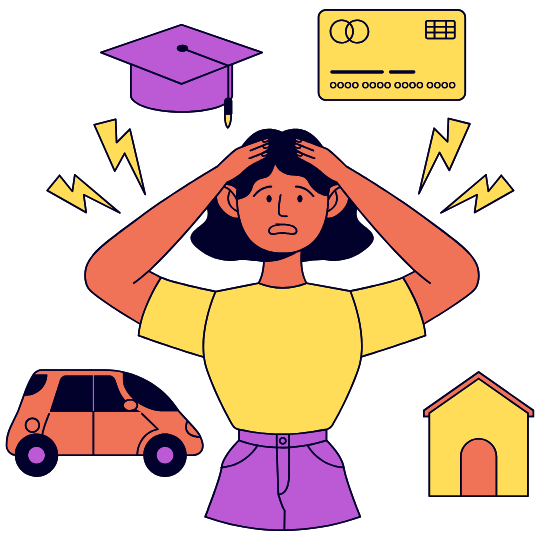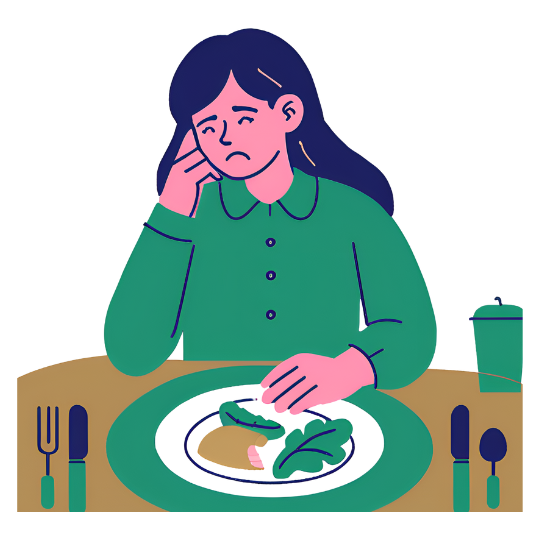
When Children and Teenagers are Violent: Causes and How to Cope
In this blog post, we’ll be diving into a crucial yet often misunderstood topic: violent behavior in children and adolescents. Witnessing such behavior can be distressing, but it’s essential to understand its roots. Oak Health Foundation is dedicated to unraveling the complexities behind these actions, shedding light on how they tie back to mental health as well as spiritual battles. Read on to explore the reasons behind such behavior, as we provide valuable insights, and discuss actionable strategies for supporting children in need.
What does it mean for a child or teenager to be violent?
There are two ways to describe violent behavior in children and teenagers.
The first form is verbal violence or verbal aggression. Examples include extreme profanity, shouting and shrieking, abusive and insulting language and more.
The second form is physical violence. Examples include kicking, punching, scratching, pushing, throwing, biting, burning, bullying – anything they do to hurt someone else, hurt themselves, or objects around them.
What causes violent behavior in children and adolescents?
Multiple factors contribute to aggression and violence by children and adolescents.
Chemical Imbalance
There may be a chemical imbalance that may need to be corrected. If someone has a mental disorder, they may not be able to control their aggression nor their behavior.
Exposure to violence
If a child has been exposed regularly to violence or has been a victim themselves (either through abuse or being a victim of bullying), they may become conditioned to resorting to violence faster than others. It is a vicious cycle because when a child is exposed frequently to violence, they are also at risk for developing other mental health problems and engaging in criminal behavior as adults.
Parenting style
Parents that are either too harsh, too lenient, or inconsistent in disciplining their child can also lead to youth violence. It is important to be consistent, firm, but not too extreme when teaching children how to resolve problems or handle negative emotions.
Is poor parenting the culprit behind violent children?
There are many other factors that can lead to violent behavior in children. It is important to receive counseling for your child if they are frequently engaging in violent behavior.
Parents must address any incident of violent behavior firmly and immediately, making it clear that it will not be tolerated. Parents must work to improve this behavioral problem; otherwise, the child will become conditioned into thinking violent behavior isn’t all that bad. If the parent ignores this behavior and neglects to correct this issue, then the behavior will continue and likely worsen. When children grow older and are unable to control their aggressions, there is a higher risk of hurting others and committing crime.
We cannot also ignore the spiritual component. We find that children and adolescents who resort to violent behavior hold feelings of deep sadness, anxiety, and/or anger. These children need to know that they are beloved children of God. Even if they may feel lost, they need to know that each of them has a purpose on this earth. Satan will do everything to keep that child angry, miserable, and feeling empty. We need to teach them that there is a deeper reason for why they are displaying these behaviors. It is a spiritual battle that requires spiritual strength to overcome. And that power is through Jesus Christ who overcame the enemy, Satan, who makes people hate and hurt one another.
What is bipolar disorder and how does it contribute to violent behavior in children and adolescents?
Bipolar disorder is a mood disorder consisting of extreme changes in mood, behavior and thinking. Typically, these moods will swing from depressive episodes to manic episodes.
Someone undergoing a manic episode typically will experience abnormally high levels of activity and energy, exaggerated sense of self-confidence (grandiosity) and euphoria, heightened distractibility and racing thoughts, irritability and agitation, as well as a decreased need for sleep. As they are in such a heightened state of activity, self-confidence, or euphoria, they may also engage in risky behaviors such as manic spending of money (that they do not have or on a parent’s credit card), risky sexual behaviors and more.
On the flipside of bipolar disorder, there is the depressive episode where all the activity, energy, grandiosity, and euphoria comes crashing down. The crash after a manic episode is dangerous because it is very common for the person to start having suicidal ideations. For those with untreated bipolar disorder will attempt suicide at a rate of 30 to 60 times higher than the average person, with 15-20% of people with untreated bipolar disorder actually dying from suicide.
A person suffering from bipolar disorder may also unintentionally commit violence during a manic episode. A person experiencing heightened levels of irritability and energy may be triggered by something to become violent.
What can parents or teachers do when a child has violent outbursts?
First and foremost, we have to ensure safety. If the child is about to hurt someone, try to remove all potential weapons from their reach or get the potential victim to safety. Call for help if necessary.
During an episode where a child or teenager is engaging in a violent outburst such as shouting, throwing, kicking, breaking things, we recommend speaking to them calmly but firmly. Screaming at them will not help de-escalate the situation. You can use the words: “It is okay to feel angry but you cannot hurt someone. You have to stop swinging the [insert weapon] around.”
Remember, you cannot solve the child’s violent behavior by engaging in violent methods yourself. Violence upon violence reinforces what they are already struggling with.
We also highly recommend going to a professional for help to understand the root of their anger and violence. It may be due to other medical issues such as depression, autism, bipolar disorder, anxiety, or more. In any case, counseling will help the child manage their anger in a healthier way. If you are a parent dealing with a violent child, we also encourage you to seek counseling as well to help ameliorate any potential stress or anxiety levels.
Spiritually, we can also keep praying for the child and reminding them about God’s agape, all-encompassing love. Even if God may not like violent behavior, it does not reduce His love for the child. Continually feeding these truths will help your child also heal on a spiritual level.
What kind of treatment do you recommend for a child who is violent?
In addition to counseling for the child, we at Oak Health Foundation emphasize training for parents as well as family therapy.
We encourage training because parents, understandably, do not always know how to deal with a child who is constantly violent. They may become so overwhelmed with frustration or anger that they may scream at their child instead of effectively de-escalating the situation. Through training, parents can better understand how to best handle a child undergoing an episode and how to not let their own emotions get in the way.
We also encourage family therapy because the entire family, with the child included, can come together in a safe space and engage in conversation guided by a mental health professional. This can help increase understanding between the child and family members, because the therapist or prescriber can ensure everyone has the chance to get their feelings out without devolving into screaming and/or violence.
In some instances, a child may need medication if they are a persistent danger to those around them. The medication will likely not be lifelong, just until the symptoms abate.
You can watch the accompanying Anchor of Hope video here.
Enjoyed our blogpost? Subscribe to our newsletter for more resources on mental health and integrating the Gospel message in your healing journey.
If you found our resources useful, please consider donating to Oak Health Foundation, which is a 501(3)c nonprofit dedicated to providing resources regarding holistic mental healthcare and subsidized treatment for those in need.




